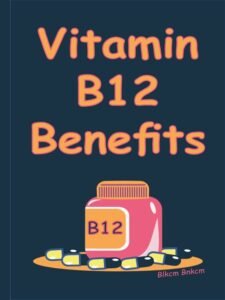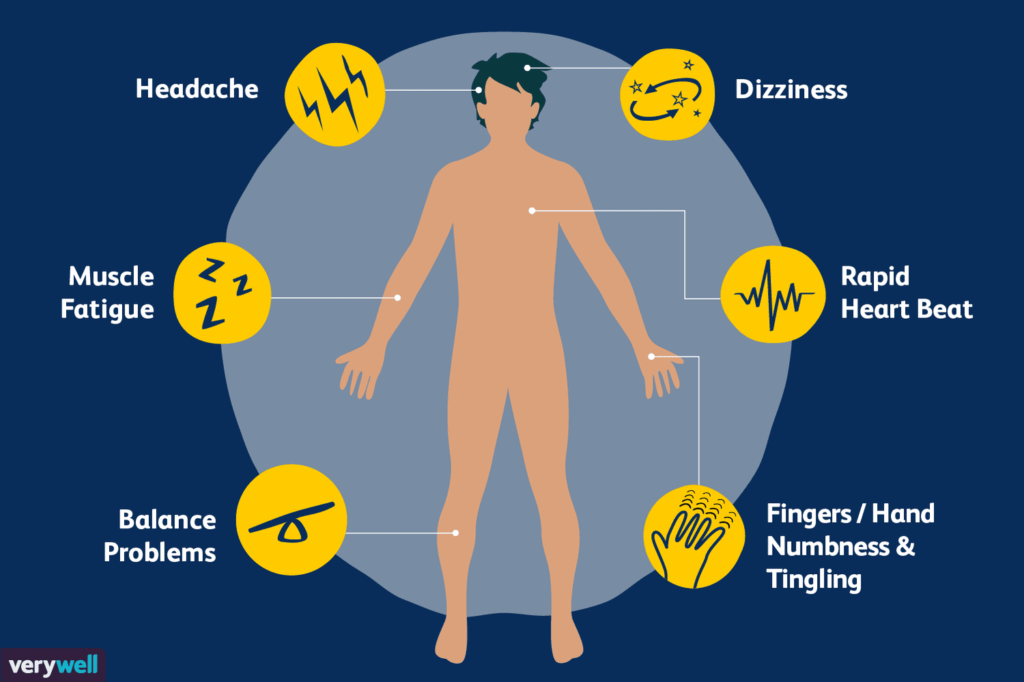Introduction Wellhealthorganic Vitamin B12
Vitamin B12, a vital nutrient for maintaining overall health, plays a crucial role in various bodily functions. Wellhealthorganic.com provides a comprehensive overview of Vitamin B12, its benefits, sources, and tips for ensuring you get enough of this essential vitamin. This article delves into the significance of Vitamin B12, how it affects your health, and practical advice for incorporating it into your diet.
What is Vitamin B12?
Vitamin B12, also known as cobalamin, is a water-soluble vitamin that is essential for several critical functions in the body. It is involved in red blood cell formation, neurological function, and DNA synthesis. Unlike some vitamins, Vitamin B12 is not produced by the body and must be obtained from dietary sources or supplements.
Key Functions of Vitamin B12
- Red Blood Cell Formation: Vitamin B12 is crucial for the production of red blood cells, which transport oxygen throughout the body. A deficiency can lead to anemia, characterized by fatigue and weakness.
- Neurological Health: It supports the health of the nervous system by aiding in the formation and maintenance of myelin, a protective sheath around nerves. This helps in proper nerve function and reduces the risk of neurological disorders.
- DNA Synthesis: Vitamin B12 is essential for the synthesis of DNA, which is necessary for cell division and overall cellular health.
- Energy Production: It plays a role in converting food into energy, helping to maintain normal energy levels and prevent fatigue.
Sources of Vitamin B12
Vitamin B12 is primarily found in animal-based foods. Here are some rich sources of Vitamin B12:
Animal-Based Sources
- Meat: Beef, pork, and lamb are excellent sources of Vitamin B12. Organ meats, such as liver and kidneys, are particularly high in this vitamin.
- Poultry: Chicken and turkey provide substantial amounts of Vitamin B12.
- Fish and Seafood: Salmon, trout, sardines, and shellfish like clams and crab are rich in Vitamin B12.
- Dairy Products: Milk, cheese, and yogurt contain Vitamin B12, making them important for those who consume dairy.
- Eggs: Eggs, especially the yolks, are a good source of Vitamin B12.
Plant-Based Sources
Vitamin B12 is not naturally found in plant-based foods. However, some fortified plant-based products can provide this essential nutrient:
- Fortified Plant Milks: Almond, soy, and oat milk often have added Vitamin B12.
- Fortified Breakfast Cereals: Many cereals are fortified with Vitamin B12.
- Nutritional Yeast: This vegan-friendly option is often fortified with Vitamin B12 and adds a cheesy flavor to dishes.
Signs of Vitamin B12 Deficiency
A deficiency in Vitamin B12 can lead to various health issues. Common signs and symptoms include:
- Fatigue and Weakness: Due to anemia and decreased red blood cell production.
- Pale or Jaundiced Skin: Caused by anemia and possible liver dysfunction.
- Neurological Symptoms: Numbness or tingling in the hands and feet, difficulty walking, or cognitive disturbances.
- Shortness of Breath and Dizziness: Resulting from anemia and decreased oxygen transport.
- Glossitis and Mouth Ulcers: Inflammation of the tongue and painful sores in the mouth.
Vitamin B12 Supplements
For individuals who may not get enough Vitamin B12 from their diet, supplements can be an effective solution. Here’s what to consider:
Types of Vitamin B12 Supplements
- Cyanocobalamin: A synthetic form of Vitamin B12 that is commonly used in supplements and fortified foods.
- Methylcobalamin: A naturally occurring form of Vitamin B12 that is often recommended for its higher bioavailability and absorption.
- Hydroxocobalamin: Another form used in injections for treating severe deficiencies.
Recommended Dosage
- Adults: The recommended daily allowance (RDA) for Vitamin B12 is approximately 2.4 micrograms (mcg) per day.
- Pregnant Women: 2.6 mcg per day.
- Breastfeeding Women: 2.8 mcg per day.
Always consult with a healthcare provider before starting any supplement regimen, especially if you have underlying health conditions or are taking other medications.
Health Tips and Considerations
Regular Testing
- Routine Check-ups: Regular blood tests can help monitor Vitamin B12 levels and ensure you are within the optimal range.
- At-Risk Groups: Individuals with certain medical conditions (such as gastrointestinal disorders), older adults, and those following a strict vegetarian or vegan diet should be particularly vigilant about their Vitamin B12 status.
Absorption Issues
- Digestive Health: Certain conditions, such as Crohn’s disease or pernicious anemia, can affect Vitamin B12 absorption. In such cases, injections or high-dose supplements may be necessary.
Balanced Diet
- Dietary Diversity: Aim to include a variety of Vitamin B12-rich foods in your diet to ensure adequate intake and maintain overall health.
Importance of Vitamin B12
Vitamin B12 is crucial for several bodily functions, including:
1. Energy Production: It helps convert food into energy, reducing fatigue.
2. Nerve Health: Supports the maintenance of the nervous system, preventing nerve damage.
3. Red Blood Cell Formation: Essential for the production of healthy red blood cells, preventing anemia.
Benefits of WellHealthOrganic Vitamin B12
 WellHealthOrganic Vitamin B12 supplements offer several benefits:
WellHealthOrganic Vitamin B12 supplements offer several benefits:
– Improved Energy Levels: Regular intake can combat tiredness and boost energy.
– Enhanced Brain Function: It may improve memory and reduce the risk of cognitive decline.
– Better Mood Regulation: B12 supports serotonin production, which can enhance mood and reduce symptoms of depression.
Who Needs Vitamin B12?
Certain groups are more at risk of B12 deficiency:
– Vegans and Vegetarians: B12 is mainly found in animal products, making supplements crucial for those on plant-based diets.
– Older Adults: Absorption decreases with age, increasing the risk of deficiency.
– Individuals with Digestive Disorders: Conditions like Crohn’s disease or celiac disease can hinder absorption.
Signs of Vitamin B12 Deficiency

Common symptoms of deficiency include:
– Fatigue and weakness
– Pale or jaundiced skin
– Nerve problems, like tingling or numbness
– Difficulty thinking and memory loss
| Category | Details |
|---|---|
| Product Name | Wellhealthorganic Vitamin B12 |
| Form | Tablets, Capsules, Sublingual Drops |
| Active Ingredient | Methylcobalamin |
| Dosage | 1000 mcg per tablet/capsule/drop |
| Recommended Use | 1 tablet/capsule/drop daily or as directed by a healthcare provider |
| Bioavailability | High, due to the use of Methylcobalamin |
| Suitable For | Vegetarians, Vegans, Older Adults, Athletes |
| Free From | Gluten, Soy, Dairy, Artificial Colors, and Preservatives |
| Certifications | GMP Certified, Third-Party Tested |
| Packaging | Recyclable, BPA-Free Containers |
| Storage Instructions | Store in a cool, dry place, away from direct sunlight |
| Shelf Life | 2 years from the date of manufacture |
| Health Benefits | Energy Boost, Improved Mental Clarity, Red Blood Cell Formation, Neurological Health |
| Potential Side Effects | Rare; may include dizziness, headache, nausea |
| Price Range | $15 – $30 per bottle (60 tablets/capsules/drops) |
| Availability | Online and in select health stores |
| Customer Rating | 4.8/5 based on customer reviews |
| Company Mission | Promote holistic health through high-quality, natural supplements |
| Customer Support | 24/7 support via email and phone |
What is Vitamin B12?

Vitamin B12, also known as cobalamin, is a water-soluble vitamin that plays a pivotal role in the functioning of the brain and nervous system. It’s also essential for the formation of red blood cells and DNA synthesis. Chemically, it contains the mineral cobalt and can be found in several forms, including cyanocobalamin and methylcobalamin.
Benefits of Vitamin B12

Energy Production
One of the primary benefits of Vitamin B12 is its role in energy production. It helps convert carbohydrates into glucose, which your body uses for energy. If you’re feeling fatigued, low B12 levels might be the culprit.
Red Blood Cell Formation
Vitamin B12 is essential for the production of red blood cells. Without adequate B12, red blood cells can become abnormally large and fail to divide properly, leading to anemia.
Neurological Health
Vitamin B12 plays a significant role in maintaining neurological health. It helps in the production of myelin, a protective sheath that covers your nerves. A deficiency can lead to neurological issues, including memory loss and mood changes.
DNA Synthesis
Every cell in your body needs DNA to function properly. Vitamin B12 is crucial for DNA synthesis, ensuring that cells divide correctly and function optimally.
Conclusion
Vitamin B12 is an essential nutrient with far-reaching effects on health, from red blood cell production to neurological function. Wellhealthorganic.com highlights the importance of understanding and maintaining adequate Vitamin B12 levels through diet and supplementation. By incorporating Vitamin B12-rich foods or supplements into your daily routine, you can support your overall health and well-being. For personalized advice, consult a healthcare professional to address your specific needs and ensure optimal Vitamin B12 levels.
